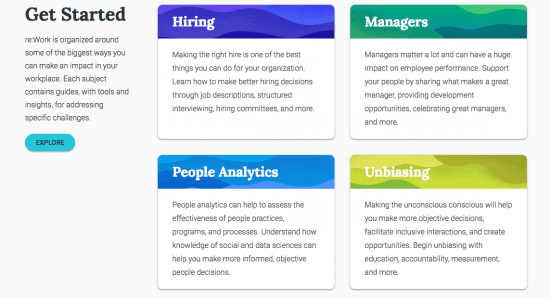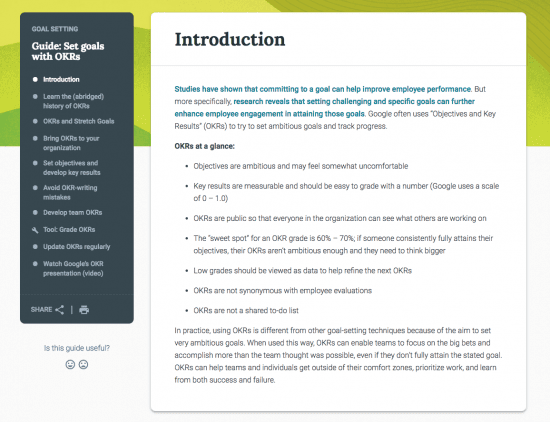Google reveals its 'secret formula' to how they plan, manage and optimize
In August Google launched re:Work, an initiative to share their management tools - such as how to run and set up meetings and setting goals.
It is more HR than marketing orientated but it is a vital process of any business - and we wanted to cover OKRs - a technique relevant to marketers which we explain below. If you go to the site you will see that Google have split their tools and guides into 4 sections: Hiring, Managers, People Analytics, and Unbiasing.

This type of 'behind the scenes' work is often overlooked but is a necessary process in any organization.
What has been released cover basic management process and tools, but as the Harvard Business Review have noted in their review of re:Work:
"Basic management practices are difficult to adopt, the firms that manage to do so see a major impact on organizational performance".
Set goals with OKRs
For marketers, one of the most useful tools available on re:Work is the goal setting guide. This takes you through, step by step, how to set up OKRs (Objectives and Key results) and how to grade them.

The tool, by Google, helps you bring OKRs into your organization and how to integrate these into your plan. This includes tips for introducing OKRs, alignment into your strategy and how to measure their success, and prioritization.
Not only do you need to introduce these OKRs into your organization, but you also need to know how to develop key result indicators.
Google suggests:
- Determine around three key results per objective.
- Key results express measurable milestones which, if achieved, will directly advance the objective.
- Key results should describe outcomes, not activities. If the KRs include words like “consult,” “help,” “analyze,” “participate,” they’re describing activities. Instead, describe the impact of these activities, e.g., “publish customer service satisfaction levels by March 7th” rather than “assess customer service satisfaction.”
- Measurable milestones should include evidence of completion and this evidence should be available, credible, and easily discoverable.









